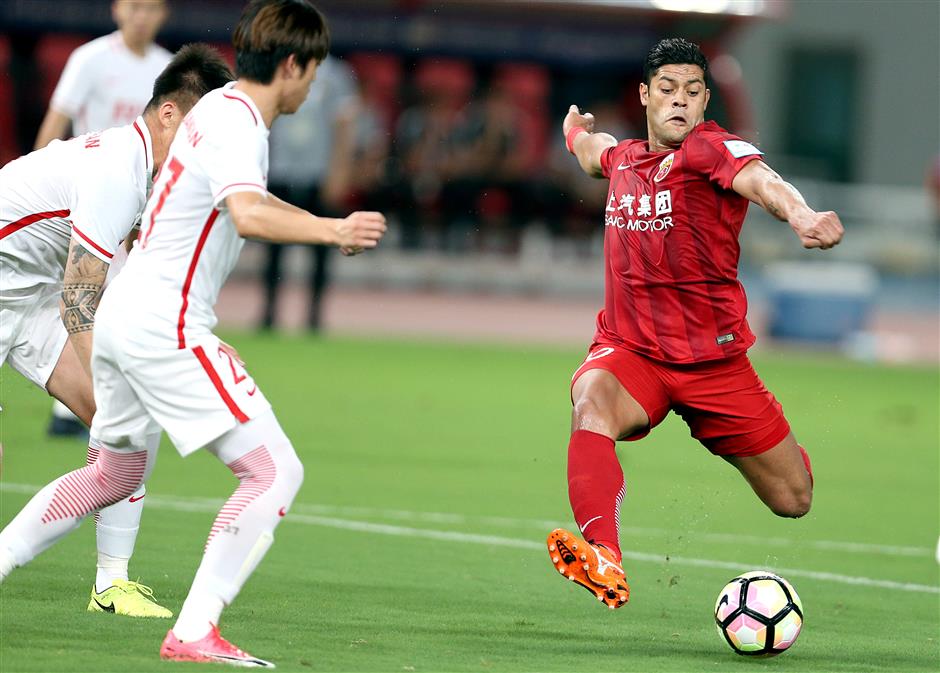Focus on young talent can help China thrive, says ex-Scotland coach Roxburgh

Shanghai SIPG striker Hulk scores the team's first goal against Tianjin Quanjian during their CFA Cup quarterfinal, second leg at Shanghai Stadium on August 3, 2017. SIPG won 4-0, to overturn a 0-3 first-leg deficit and advance 4-3 on aggregate. It will take on defending Chinese Super League champion Guangzhou Evergrande in the semifinals.
China needs to follow Japan's lead in developing youth talent if the country is to have any hope of becoming a global soccer force, according to former UEFA technical director and Scotland coach Andy Roxburgh.
Chinese Super League clubs have made headlines in recent years for spending huge sums to lure foreign stars to East Asia but Roxburgh says it will count for little if the nation does not develop a steady stream of players across age-group levels.
"Look at China right now: in the youth tournaments, are they one of our teams?" Roxburgh, who currently works as the Asian Football Confederation's technical director, said.
"Where are they? You can't even look at them. If China wants to be good then this is one element of it, it's an indicator and you can't see the players coming.
"The Japanese last year they won the Asian under-23s, they won the Asian under-19s for the first time and they were in the top four in the Asian under-16s and there's talent there.
"It needs to be done over a period, it's not about having one good year."
The Chinese have set their sights on becoming a global football power but the country's track record at the highest level is poor.
China has only appeared at one World Cup, in 2002, while the nation's youth teams have continually struggled in recent years even at a regional level.
The last time the country qualified for the world youth championships was in 2005, when it appeared at both the under-17 and under-20 editions.
Roxburgh acknowledges that while signing high profile foreign talent does have its benefits, China needs to have a multifaceted approach if the country is to succeed.
"Buying a number of star foreign players helps, because it rubs off," he said.
"In Japan, for example, there was the influence of Zico. A number of players developed because of him, with the free kicks and what have you.
"So the role models and the Chinese players playing with some of these great Brazilian players will help them to develop, it raises the standard.
"But that in itself is not enough. It needs to have all of the roots for success."
The Scot suggested China should also take a cue from nations which have recently dominated at the World Cup and in regional and global youth tournaments over the past decade.
"You don't need to reinvent the wheel, just look at Germany, just look at Spain," he says. "That tells you the whole story.
"So if they have that ambition then they need to think about that. If it's not authentic, if it's artificial you can't graft it on. It has to come from the roots.
"The icing on the cake is important but it's only part of it and the idea that spending all this money on all these players is going to make China a great football nation is not the case.
"The red thread through everything is coaching, whether it's elite, grass-roots or club level. Coach education has to be addressed and that's again where Spain win, Germany win.
"You have to put something in to get something back in this world and in the case of Germany and Spain they pour it in."















